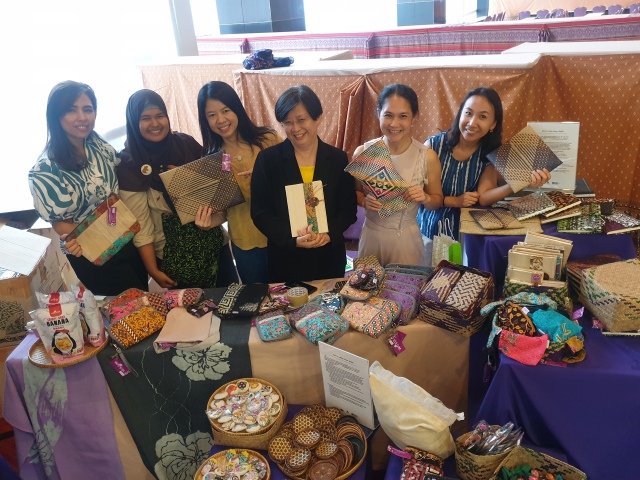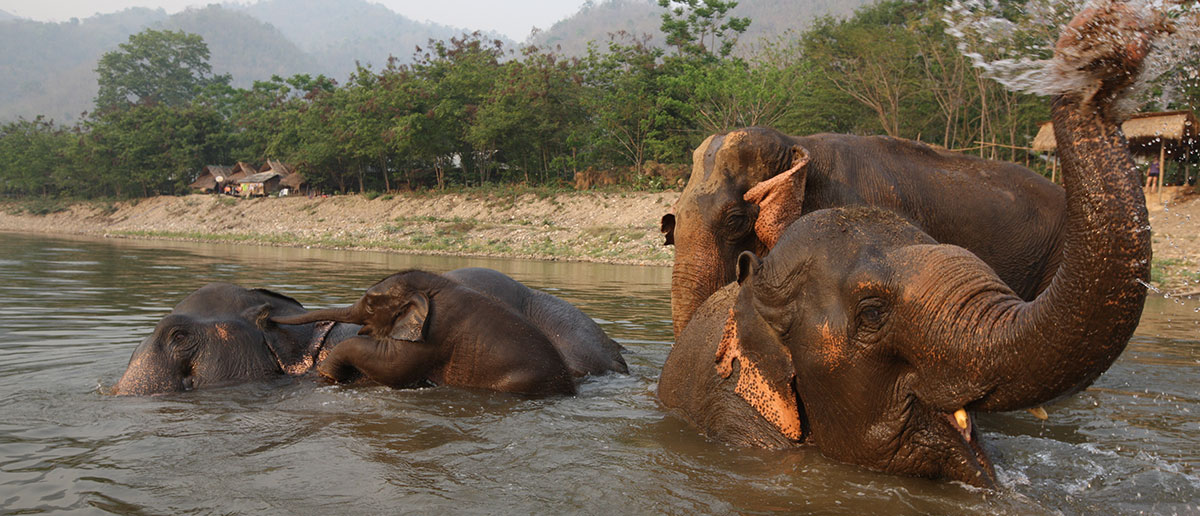Social entrepreneurship is a concept that the people of Thailand have already been aware of and are well known for the same. Social entrepreneurs use their profits and channelise them for a positive impact on the society. People are now using this concept as the need to reciprocate positive results to the society is essential. Thailand government has also given many incentives for the growth of social enterprises.
1. Courageous kitchen
Founder : Dwight turner
Sector : FMCG
Where : Bangkok, Thailand 2009
Courageous Kitchen is an organization which inspires marginalised youth in Bangkok, Thailand through the power of food. Although Bangkok is a well-known city, there are still many people who struggle to feed themselves. They are currently providing no-cost services like pre-schools, cookery and English classes, distribution of food and hygiene products, support for housing and medical emergencies.
How a courageous kitchen formed?
The courageous kitchen began in 2009 as a small initiative named in search of Sanuk which aims to provide food and housing to children and families. ‘Sanuk’ means fun and enjoyment in Thai. They chose this because they think that every child has a right to a happy and healthy childhood.
What impact the courageous kitchen is creating
The courageous kitchen works to combat social issues and their consequences through it’s core program. To combat the risk of malnutrition they teach and encourage children to prepare good and nutritious meals through best cooking methods. They also provide supplementary education in areas of language maths, arts and culinary instruction and also support students without financial means to enroll in local schools with the sport for tuitions, uniform and activity fees.
2. Folkcharm
Founder : Passawee T. Kodaka
Targeting Sector : Lifestyle and fashion
Where : Bangkok, Thailand 2014
Folkcharm is an ethical enterprise which takes the help of natural cotton farmers and local craftsmen to make apparels and products with the right blend of traditional wisdom, offering quality clothing which is made from locally grown organic, natural-dye and handwoven cotton. Paasawee’s vision is for people to adopt sustainable lifestyles and contribute to the preservation of traditions.
What problems folkcharm is solving
The rapid expansion of the fashion industry across the globe, seems as the greatest challenge for traditional craft businesses. So now folkcharm is creating the values of local traditions and craftsmanship through sales of products, community tours and hands-on workshops. They are now walking over with 50 home-based women workers, farmers, weavers, tailors, craftsmen in Bangkok.
What impact folkcharm are creating
- Empower the local communities
- Promote the lifestyle where local crafts and producers are involved
- Increase the income-earning opportunities
- Enable travellers and explorers to experience the life of rural craft communities.
The rapid expansion of the fashion industry across the globe, seems the greatest challenge for traditional craft businesses. For rural craft communities, mass production, tastes and preferences, social conditions have placed a higher survival risk, it has made it worse for the younger ones to continue the same professions.
3. Hivesters
Founder : Achi and mint tharmparipatttra
Sector : Travel and tourism
Where : Bangkok, Thailand
Hivesters is an award-winning social enterprise who are offering unique and sustainable travel experiences in Thailand. It is a travel social enterprise who are passionate about creating a positive impact on our local communities. They are working with 300 artisans like art and performances, crafts or cooking in Thailand. It trains them to be ready to welcome and share their passion with travellers who are looking for unique and impactful experiences.
What problem hivesters is solving
Basically, hivesters offer unique and real Thai travel experiences that are sustainable such as local neighbourhood, learning Thai dance, the real floating market and many more things. They work together with local artisans in the communities through their signature program to develop and promote the travel activities with the impact.
What impact hivesters are creating?
There are creating sustainable changes in the travel industry by bringing more income to the local inclusive travel, preserving disappearing culture and communities and taking care of our environment. They are also providing training which includes service, storytelling, entrepreneurial skills which provide first-time access to the tourism industry for many artisans.
4. Local alike
Founder : Soomsak boonkam
Sector : Travel and tourism
Where : Bangkok, Thailand 2013
Local alike is a social enterprise which is building a platform to connect travellers with local ones in order to make villages in Thailand more sustained and to empower communities to gain positive impact from tourism. As a social enterprise, locals alike use community-based tourism as a form of development tool to preserve local culture and generate additional income for the community.
What problems are local alike solving?
Local alike is an idea of sustainable development of community-based tourism in order to make Thailand more sustainable and empower the community to gain an impact from tourism while offering authentic travel experiences around the world.
What impact is local alike creating?
Since past years, local alike has been dedicated to developing local host communities through tourism generates impact as follows:
- 2000 part-time jobs for local residents
- Collaborated with more than 50 company
- Working with more than 100 local communities
- Bring more than 32000 travellers around the world which generates 54 Million Baht (Thai currency) and benefits local communities.
5. Akha Ama coffee
Founder : Lee Ayu
Sector : Hospitality
where : Chiang Mai, Thailand 2010
Akha Ama Coffee came from an Akha family of village maejantai. Instead of selling the cherry and parchment coffee to middlemen for a low price, the family had decided that they will make coffee and market themselves and ensure a better price for the product. Lee ayu and his family have reached the heights of success with just a little idea. Moreover, they have been awarded in 2010 and 2011 for the World Cup Tasters championship by Coffee Association.
What problems akha ama coffee solving?
The family decided to change organically sustainable systems of mixed-cropping systems for their coffee, reducing the use of chemical fertilizers, herbicides, pesticides. Now the coffee is in between large fruits and vegetable trees. As earlier, it was beyond the height of humans.
What impact Akha ama coffee is creating?
This helped the village the most because it gains self-assurance to know that someone is beside them to guide. Young people there are not fighting for education as earlier they were, now they are studying Thai, English, Japanese, Korean, mandarin. They are connected to the world and now they have become global citizens.
6. Wanita

Founder : Group of women from Songkhla
Targeting Sector : FMCG, handicrafts
From where : Songkhla, Thailand
Wanita is a social enterprise who believes that to communicate with others reflects their story, way of life and culture through the product made by women’s groups. Wanita is in — food products, handicrafts, wickerwork, souvenirs, and some special gifts as well.
What problem wanita is solving?
Wanita is a women-led and community based which aims to create interest in both the social and financial dimensions to improve the quality of life of the people of Songkhla. The effects of the conflicts have caused these women to change their role tremendously- from a housewife who takes care of her house and earning for them as well.
What impact Wanita is creating?
Wanita is an influential enterprise with around 700 members from 60+ groups of women in their southern border and 4 districts of Songkhla. The group of only 5-6 women had influenced 1000+ women for doing some sort of which can help them a lot from an earning point of view.
7. Baan Unrak foundation
Founder : Gemma Ashford
Sector : Development
Where : Sangkhlaburi, Thailand
Baan unrak is a social enterprise which supports children and single mothers of Sangkhlaburi and Kanchanaburi, Thailand. It incorporates the Baan unrak children’s home, primary school, community development projects such as weaving centres where single mothers make handicrafts and earn some wage.
What problem Baan unrak is solving.
The children’s home: Their biggest part of the mission is that they provide a safe, loving, healthy home for needy from Thailand and Myanmar including Thailand and Myanmar including the neighbouring states.
Education: All the children are being providing high-quality education like Local schools, nursery schools and University
Weaving and sewing centre: The speciality about the Baan unrak product is that they are not artificial, they are created by organic, vegan materials which is an added value in their products.
What impact Baan unrak is creating.
Baan unrak in order to provide formal education for their children. They also address many more issues faced by women. It is currently home to over 140 children, along with many of the mothers. All mothers and children are refugees from Myanmar. Basically, in Thai ‘Baan unrak’ means the home of joy.
8. Boon Lott’s elephant sanctuary
Founder : Katherine connor
Targeting Sector : Animal and wildlife sanctuary
Where : Sukhothai thani, Thailand
BLES strives to rescue and protect the elephants of Thailand from abuse and ultimate extinction. They provide a safe home where they focus on individual survival and learning social skills. BLES allies elephants to give in a natural environment that encourages them to rediscover their real identity and social interactions.
What problems BLES is solving.
They teach animals the basic skills such as:
- Natural foraging
- Swimming
- Scratching
- Dust baths
“BLES is passionately devoted to creating a safe and natural home for the Thai elephants”.
What impact BLES is creating.
They also offer support and advice to their local elephant owners who do not have sufficient resources and funds to take care of their animals, they are deeply committed to our village community and provide jobs and housing to their families. They encourage local participation in activities and promote education about elephants and their plight as well as the environment.
9. Doi tung development project
Founder : Princess mother
Sector : Development
Where : Chiang Rai, Thailand 1990
DTDP is administered by Mae fah luang foundation (MFLF). This Thai organization works to improve the livelihood of marginalized communities through social services and entrepreneurship. Their main aim is to develop a coexistence between human and nature.
The timeline of DTDP in 30 years. This timeline is divided into 3 phases: Phase 1 (1988-1993), Phase 2 (1994-2002), Phase 3 (2003-2017).
DTDP aims to foster a harmonious existence between humans and nature. The project aims to create a sustainable livelihood for people to be lifted from poverty, sickness and lack of knowledge.
10. Elephant nature park

Founder : Sangduen “lek” chailert
Sector : Animal and wildlife sanctuary
Where : Chiang Mai, Thailand 1990
The elephant nature park is a project which operates under a business model in which tourists pay to visit and help care for animals (includes dozens of elephants across Thailand) and can stay for extended periods. The park is located 60 km. which can not be any kind of disruptive for both elephants and humans.
What problem elephant nature park is solving
They are taking all the animals under protection, in addition to the elephants hey also have accommodated over 500 dogs, cats, birds, water buffaloes at the park. They are also convinced that several independent camps improve the lives of elephants.
What impact does the elephant nature park create?
- Sanctuary for endangered species
- Rainforest restoration
- Cultural preservation
- Increase employment
- Visitors educations
- Act independently


